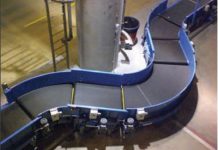
Physicist Xiaoming Mao from the University of Michigan in Ann Arbor and her team have been awarded a five-year, $7.5 million grant from the Office of Naval Research to develop metamaterial for helmets and body armor.
Mao and her team are developing this metamaterial, which gets its properties by the way it is structured rather than the material itself. The thought is that it can better disperse impact when hit by a projectile while simultaneously being light and flexible in normal conditions.
“For cars, you can easily imagine that if you change the material’s surface between the stiffness of a metal and the softness of rubber, that could be very useful in collision protection,” says Mao, associate professor of physics at U-M. “These materials may have applications in defense, where it could be used to design helmets and armor.”’
The grant was given to Mao based on her theoretical work of being able to change the metamaterial’s physical properties from the nanoscale to the macroscale. The metamaterial changes properties based on how an object comes into contact with it; as the object contacts the edge of the metamaterial it changes the geometry of the material’s structure and transforms its ability to respond to forces so that it can absorb shock and direct stress to minimize damage.
The research team will use the grant, which was awarded as a part of the Department of Defense’s 2020 Multidisciplinary University Research Initiative program, to verify their method by 3-D printing and using the self-assembling building blocks.
The team will bring together their expertise in physics, materials science, mechanical engineering, and chemistry to realize these metamaterials with unprecedented properties.
Engineering professors Nicholas Kotov of U-M and Qian Chen of the University of Illinois will create the material at a nanoscale using their backgrounds in designing self-assembling building blocks. Team member Ellen Arruda of U-M’s College of Engineering will serve as the 3-D printing expert to print the material at the macroscale. U-M physicist Kai Sun and engineer Zi Chen of Dartmouth College will also be assisting in the research.
The team originally published their method in a 2017 study in Nature Communications.











